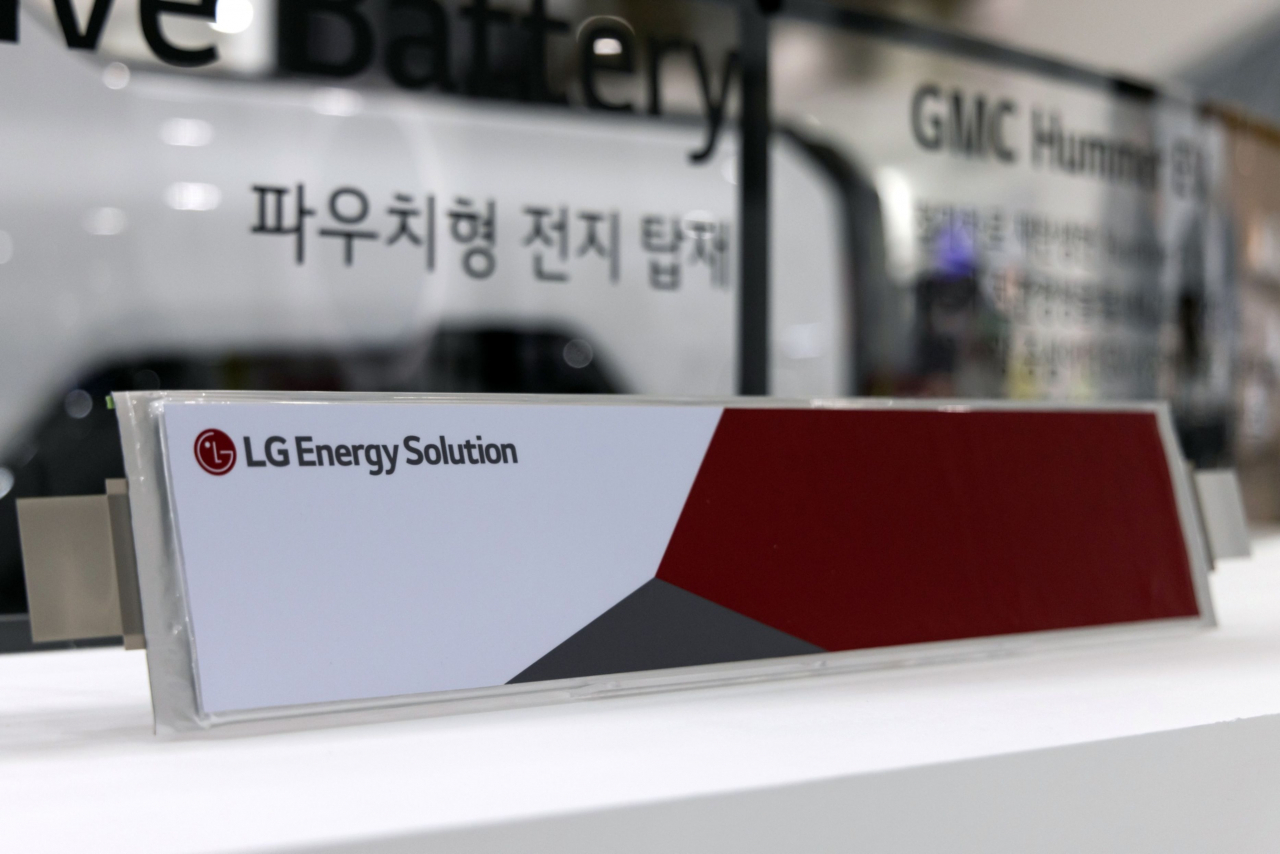 |
An LG Energy Solution battery cell for electric vehicles (Bloomberg) |
LG Energy Solution said Wednesday it has forged a new partnership with Ford and KOC Holding, a Turkish real estate developer, to build an electric vehicle battery plant in Turkey, two weeks after similar talks fell apart between its crosstown rival SK On and the US auto giant.
Under a nonbinding memorandum of understanding, the three companies agreed to build an EV battery plant in the Baskent region near the Turkish capital of Ankara. The plant will have an annual production capacity of 25 gigawatt-hours, with plans to expand the volume to some 45 gigawatt-hours in phases. The production is set to start in 2026.
The batteries will be used in the US carmaker’s electric commercial vehicles sold in Europe and North America, including those produced by Ford-Otosan, a joint venture between Ford and KOC Holding.
By teaming up with Ford, the bestselling commercial vehicle brand in Europe, LG Energy Solution said it was seeking to foray into Europe’s fast-growing heavy-duty EV market.
“Joining hands with LG Energy Solution, equipped with a high level of product quality and production capacity, we believe Ford can secure a more stable battery supply chain, a key component of its electrification road map,” said an official from LG Energy Solution.
More details, including the value of the deal, were not immediately made available.
In March last year, Ford, SK On and KOC Holding signed an MOU, worth an estimated 4 trillion won ($3 billion), to build an EV battery plant near Ankara. But they called off the discussions earlier this month without elaborating on the exact reasons.
Both LG and SK are key partners for Ford’s green car push. The carmaker has vowed to produce more than 2 million EVs worldwide by 2026 and make EVs account for 40 percent of new car sales by pumping out more than $30 billion in the coming years.
Experts here say LG Energy Solution’s product quality and cash flow appear to be the key factors behind the new high-profile partnership.
“LG may have boasted its battery quality compared its rival,” said Kim Pil-su, a car engineering professor at Daelim University, citing a recent fire of Ford’s electric pickup truck F-150 Lightning that uses SK On’s high-nickel NCM9 battery.
Ford suspended the car’s production earlier this month to conduct a thorough investigation into the fire. On Monday, SK On’s US subsidiary resumed production, saying the cause of the fire was related to manufacturing problems, not battery technology itself.
“Noting that it takes around 2 to 3 trillion won to build a battery plant, Ford is also likely to have partnered with LG as it is equipped with a more abundant cash flow than SK,” Kim added.
Starting from 2011, when LG Energy Solution first supplied batteries to the Ford Focus EV, it has expanded production volume every year. Following a surge in sales of Ford’s Mustang Mach-E sport utility vehicles and E-Transit vans, the company announced last year it will double the production capacity of its battery plant in Poland.
In a move to create a strong foothold in North America, Europe and Asia, the battery maker also aims to increase the annual production capacity to as much as 300 gigawatt-hours. It plans to expand investments in facilities by more than 50 percent, while elevating sales by 25-30 percent compared to last year.
As of last year, LG Energy Solution has secured an annual capacity of 200 gigawatt-hours and accumulated orders worth 385 trillion won from its partners. It operates plants and joint ventures across Korea, US, China, Poland Canada and Indonesia.
Despite the failed talks on the Turkey plant, SK On stressed its unwavering alliance with Ford.
“We still have a strong partnership with Ford, with business plans to work in the US and other global markets,” said an SK On official.
In a regulatory filing Tuesday, the company said it was investing an additional 2 trillion won into BlueOval SK, a US joint venture with Ford. The company plans to inject a total of 5.1 trillion won in the 50:50 JV worth 10.2 trillion won by 2027.







